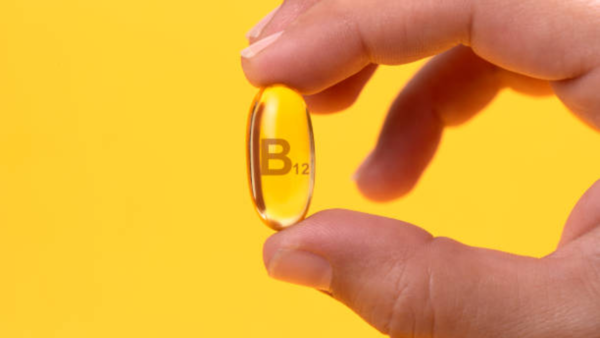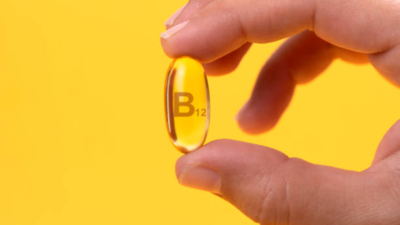Vitamin B12 is an essential nutrient that the body needs for pivotal processes, including DNA synthesis, energy production, and central nervous system function. Despite its importance, about 20% of people over the age of 60 in the United States and the United Kingdom are deficient in the vitamin. Here are some crucial signs and symptoms of vitamin B12 that one should not ignore. What is vitamin B12

Vitamin B12 is a water-soluble vitamin crucial for several bodily functions. It is naturally present in foods like fish, poultry, eggs, and milk, but absent in most plant-based foods unless fortified. Because vitamin B12 contains the mineral cobalt, compounds with vitamin B12 activity are collectively called cobalamins. As the body cannot produce B12, dietary intake or supplements are essential. What is the function of vitamin B12

Consider vitamin B12 as a powerhouse nutrient. The functions include:Red blood cell formation: Helps in the production of healthy red blood cells and prevents megaloblastic anemia.DNA synthesis: Essential for the replication and maintenance of DNA in the cells.Neurological function: Maintains the health of nerve cells and supports proper functioning of the nervous system.Energy production: Takes part in the conversion of carbohydrates into glucose, providing energy.Brain health and cognitive function: Supports memory, focus, and overall cognitive health; may reduce the risk of neurodegenerative diseases.Heart health: Helps regulate homocysteine levels in the blood, reducing the risk of cardiovascular disease.Mood regulation: Plays a crucial role in the production of neurotransmitters like serotonin and dopamine that influence mood.Supports bone health: Contributes to bone strength; low levels are linked to decreased bone mineral density.Skin, hair, and nail health: Promotes healthy cell reproduction, supporting the health of skin, hair, and nails.Immune support: Aids in the production of white blood cells, which are crucial for a strong immune system.What are the signs of vitamin B12 deficiency

Vitamin B12 can cause a wide range of symptoms. Though these develop gradually, they can worsen if the condition goes untreated. Vitamin B12 deficiency arises from difficulty absorbing vitamin B12 from food, or lack of intrinsic factor (e.g., because of pernicious anemia), or surgery in the gastrointestinal tract, prolonged use of certain medications, or lack in the diet.
- Persistent fatigue: Low B12 levels reduce oxygen-carrying red blood cells, leading to constant tiredness or weakness.
- Pale or yellow skin: Another hallmark sign of low vitamin B12 is paleness. Anemia related to B12 deficiency leaves the skin pale due to poor red blood cell production. It can also cause jaundice.
- Headaches
- Mood changes: Deficiency may cause depression, irritability, or anxiety due to disrupted neurotransmitter production.
- Glossitis and mouth ulcers: A sore, red, or smooth tongue and mouth ulcers are early warning signs, sometimes accompanied by a burning sensation.
- Weight loss
- Feeling unwell: Experiencing nausea, vomiting, or diarrhea.
Neurological symptoms include:
- numbness
- muscle weakness
- psychological problems, which can range from mild depression or anxiety, to confusion and dementia
- problems with balance and coordination
- pins and needles
- incontinence


